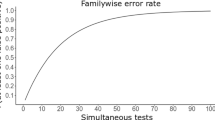
Overview
- Provides novel quantitative methods and software to measure change and error
- Explains concepts in clear language, equations, and graphics that rectify popular misconceptions
- Gives unique insights for applications to several fields especially Geographic Information Science
Part of the book series: Advances in Geographic Information Science (AGIS)
Access this book
Tax calculation will be finalised at checkout
Other ways to access
About this book
Your government warns that 10% of your neighbors have a deadly contagious virus. The producer of a diagnostic test advertises that 90% of its tests are correct for any population. The test indicates that you have the virus. This book’s author claims your test has a 50% chance of being false, given your test’s result. Who do you believe? This book gives you insights necessary to interpret metrics that make a difference in life’s decisions.
This book gives methods and software that are essential to analyze change and error. Change describes a phenomenon across time points. Error compares diagnoses with the truth. Other texts give insufficient attention to these topics. This book’s novel ideas dispel popular misconceptions and replace previous methods. The author uses carefully designed graphics and high school mathematics to communicate easily with college students and advanced scientists. Applications include but are not limited to Remote Sensing, Land Change Science, and Geographic Information Science.“A wide range of tools to aid understanding of land cover and its change has been used but scientific progress has sometimes been limited through misuse and misunderstanding. Professor Pontius seeks to rectify this situation by providing a book to accompany the researcher’s toolbox. Metrics That Make a Difference addresses basic issues of relevance to a broad community in a mathematically friendly way and should greatly enhance the ability to elicit correct information. I wish this book existed while I was a grad student.” – Giles Foody, Professor of Geographical Information Science, The University of Nottingham
“Metrics That Make a Difference provides a comprehensive synthesis of over two decades of work during which Dr. Pontius researched, developed, and applied these metrics. The book meticulously and successfully guides the reader through the conceptual basis, computations, and proper interpretation of themany metrics derived for different types of variables. The book is not just a mathematical treatise but includes practical guidance to good data analysis and good science. Data scientists from many fields of endeavor will benefit substantially from Dr. Pontius’ articulate review of traditionally used metrics and his presentation of the innovative and novel metrics he has developed. While reading this book, I had multiple ‘aha’ moments about metrics that I shouldn't be using and metrics that I should be using instead.” – Stephen Stehman, Distinguished Teaching Professor, State University of New York
Similar content being viewed by others
Keywords
Table of contents (12 chapters)
-
Front Matter
-
Back Matter
Authors and Affiliations
About the author
Bibliographic Information
Book Title: Metrics That Make a Difference
Book Subtitle: How to Analyze Change and Error
Authors: Robert Gilmore Pontius Jr
Series Title: Advances in Geographic Information Science
DOI: https://doi.org/10.1007/978-3-030-70765-1
Publisher: Springer Cham
eBook Packages: Earth and Environmental Science, Earth and Environmental Science (R0)
Copyright Information: Springer Nature Switzerland AG 2022
Hardcover ISBN: 978-3-030-70764-4Published: 25 March 2022
Softcover ISBN: 978-3-030-70767-5Published: 26 March 2023
eBook ISBN: 978-3-030-70765-1Published: 24 March 2022
Series ISSN: 1867-2434
Series E-ISSN: 1867-2442
Edition Number: 1
Number of Pages: XXI, 117
Number of Illustrations: 1 b/w illustrations, 16 illustrations in colour
Topics: Geographical Information Systems/Cartography, Statistics for Engineering, Physics, Computer Science, Chemistry and Earth Sciences, Probability and Statistics in Computer Science, Several Complex Variables and Analytic Spaces, Algorithms



